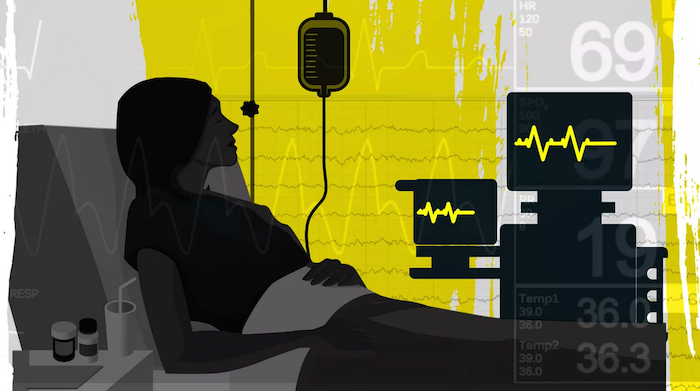How we treat dying people needs to change.
By
Fifty years ago, a physician was admitted to the hospital with stomach cancer. He wrote down in his own medical chart that he did not want CPR or to be connected to a breathing machine. His wishes were disregarded — he underwent CPR numerous times and was connected to a breathing machine until he died. Back then, not only were people treated in ways they did not want, many patients were also arbitrarily denied potentially lifesaving therapies.
Doctors decided who deserved to live or not: In one New York hospital, doctors put purple stickers on the charts of patients they determined would not receive CPR or other similar measures without the patients’ or their families’ knowledge. Decisions about life and death were subjective and opaque.
End of life care has considerably improved since then. Patient preferences now help direct physicians and nurses about what type of care they would want to receive. But 50 years into the future, we will look back on today and conclude that medicine was sorely lacking when it came to how we handle death.
Many in medicine, as well as patients and caregivers, continue to equate more procedures, more chemotherapy, and more intensive care with better care. Studies in patients with cancer and heart disease, the two greatest killers of mankind, show that patients receiving palliative care, which is an approach that focuses on quality rather than quantity of life, can actually live longer. While the goal of palliative care is to help people with a serious illness live as well as possible — physically, emotionally and spiritually — rather than as long as possible, some people receiving palliative care might also live longer since they avoid the complications associated with procedures, medications, and hospitalization
In addition, while medical advances have moved forward at blinding pace, the ethical discourse surrounding many technologies has not kept up. Take, for example, cardiac devices such as pacemakers and mechanical pumps that can be placed in the heart. Many patients with terminal illnesses who want to deactivate these devices find resistance from the health system, since some continue to equate deactivating them with euthanasia. We need to continue to make sure that even as technological advances blossom, patients remain at the center, and physicians continue to honor their wishes.
And while the palliative care specialty has greatly improved end-of-life care, too often, palliative care has been used as a way to avoid the culture change needed by all medical specialties to better handle death. Despite its many benefits, many patients and physicians are scared of “palliative care” because of its strong association with the end of life. Some have been compelled to change the title of their practices to “supportive care.” To many patients, the very name “palliative” implies that they will be abandoned, making them very reluctant to accept their services. The fact is that palliative care can, and should, be delivered to patients with serious illness alongside conventional care.
But the issues go beyond the name — one recent study showed that palliative care-led meetings with families of patients in intensive care units led to an increase in post-traumatic stress disorder symptoms among family members. Palliative care specialists are often consulted in tense situations when patients are critically ill, and they often have no prior relationship with patients or their families, who might be unprepared to have serious discussions with them. That’s why most of these difficult conversations should be delivered by the doctors and surgeons primarily responsible for treating the patients. One study estimated that by 2030, the ratio between palliative care specialists and eligible patients will be 1 to 26,000. Palliative care specialists cannot be entirely responsible for end-of-life care by themselves.
To emerge on the right side of history, the entire culture of medicine needs to be turned around. End-of-life care is not just palliative care’s business. It is everyone’s business, from emergency room doctors to primary care physicians. Physicians need to abandon outdated ideas that their role as healers is incompatible with helping patients die comfortably and on their own terms. Helping patients die well is as important as helping them live to the fullest.
Complete Article ↪HERE↩!

